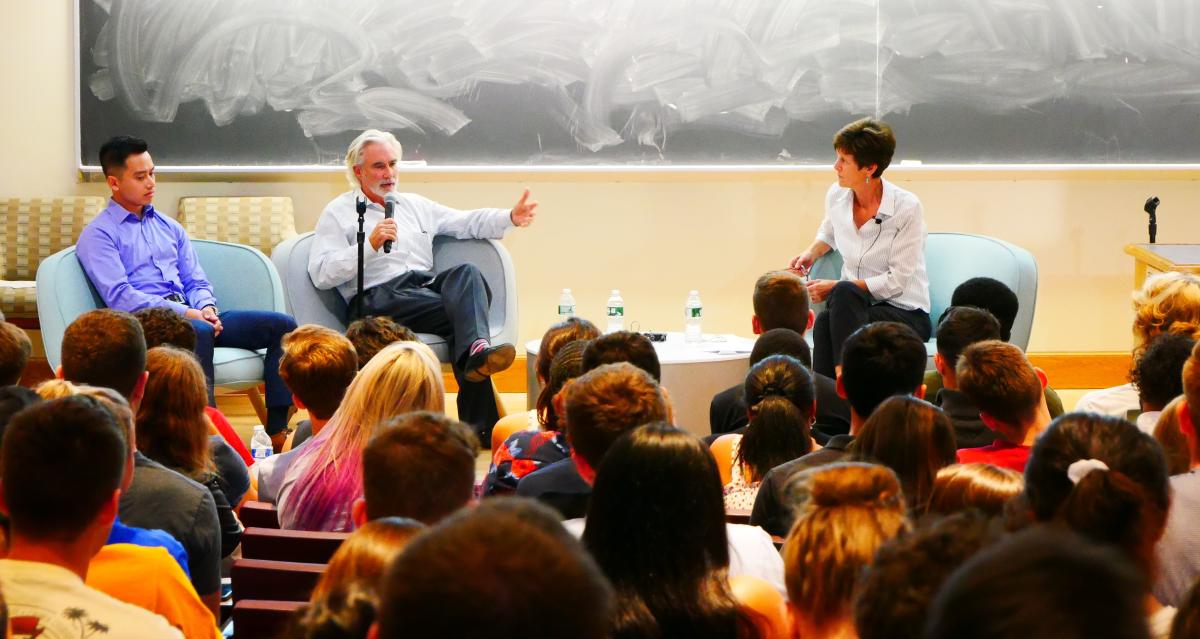Students Learn the Value of Giving Back at Dean's Seminar
September 16, 2019

“Why does philanthropy matter?” Dean Massey asked the students. “For one thing, we raised over $500,000 in scholarships last year in support of 180 students.” The school does lots of different things with alumni support, she continued, evidenced by named facilities as well as the name of the school itself. Philanthropy, she said, enriches student life, including club participation, field trips, and other activities.
After her introduction, the dean introduced two members of the senior gift committee who discussed their own scholarships and the importance of student participation in philanthropic efforts. Emma Jopson ’20, an operations and information management major, described her four-year scholarship created by Charles McQuaid, a 1974 Isenberg grad. “It made Isenberg and UMass affordable for my family,” she emphasized. Mr. McQuaid, she added, meets with her during his periodic visits to Isenberg. Accounting major Daniel Sharaf ’20, a recipient of two scholarships, traced the evolution of the senior class gift. “It started in 2011 as a makeshift project, with 4 percent of the school’s seniors participating. Last year, 84 percent of the class participated. This year, we’re shooting for 85 percent.” The revenues, he added, have funded an endowed scholarship—students raised $25,000, which was matched by another source—as well as purchase of a plasma TV and other enhancements.
Paul Carney ’82, an accounting graduate who made his mark in Silicon Valley technology firms, explained the thought process that led to his endowment of a scholarship for Isenberg students. It emphasizes multiculturalism, he remarked, particularly through its support of international students. Their presence at Isenberg benefits all of the school’s students, he added. Carney’s scholarship followed considerable soul searching: “I stepped back. I wanted the gift to have the biggest impact on the school’s growth and its opportunities for students.” The scholarship’s first recipient, Haohao Guo ’11, described how the scholarship changed his life. “I was born to a poor family in a village in southeastern China,” he told the students. “Studying in the U.S. would have been impossible without Paul’s support.” Today, Haohao is a generous Isenberg donor himself and works as finance director of the Massachusetts International Academy in Marlborough.
Carney has set the bar high for others in his devotion to Isenberg and UMass (including the College of Education). He is underwriter of a professorship, held by Isenberg’s Associate Dean George Milne. And in recognition of his philanthropic support for Isenberg’s new Business Innovation Hub, his name graces its café. “Being a student here was awesome,” Carney told his audience. “And I’ve made many permanent UMass friendships.” Giving back, he said, was never in question. “Education,” he said, “is a game changer; it levels the playing field.”
Seventy-nine percent of the seminar attendees took the message to heart and made donations in support of two freshman scholarships, after hearing that their contributions would be matched both by Dean Massey and also the UMass Amherst Faculty and Staff Campaign.